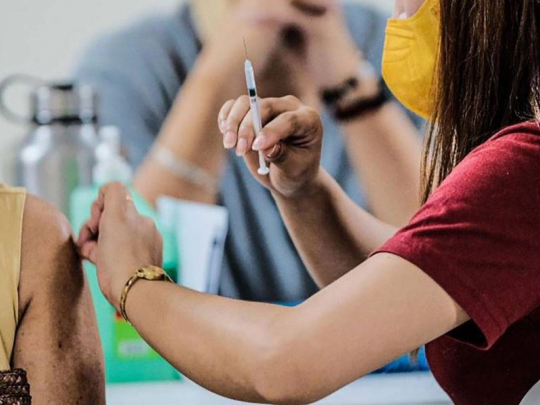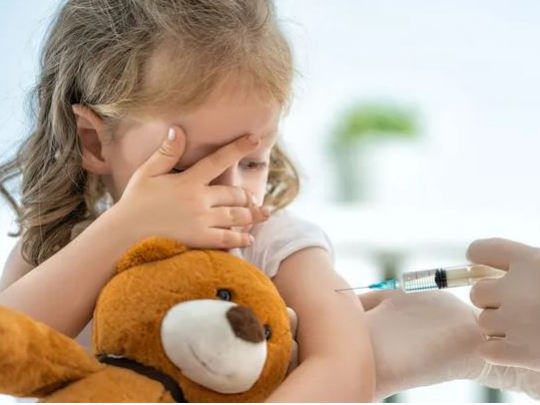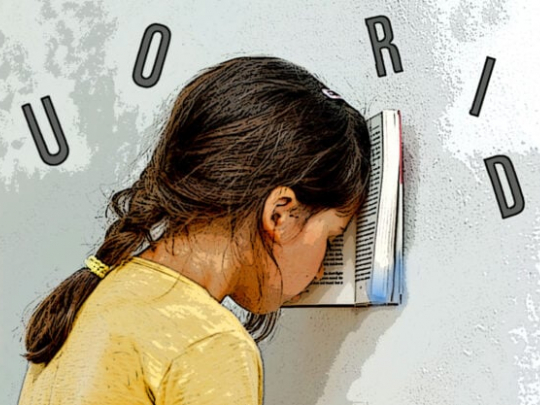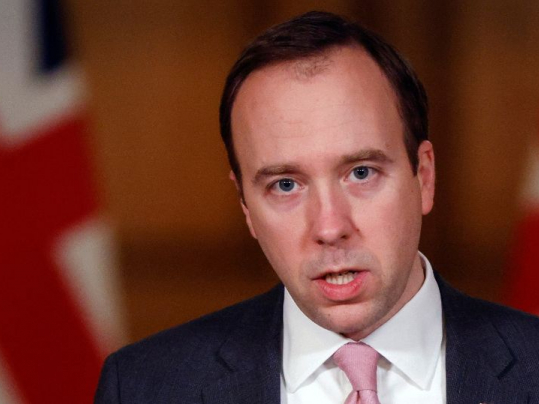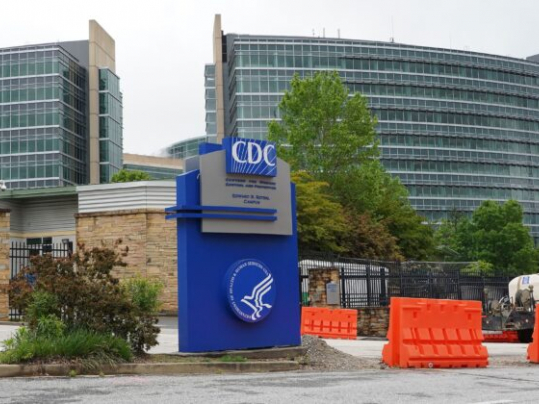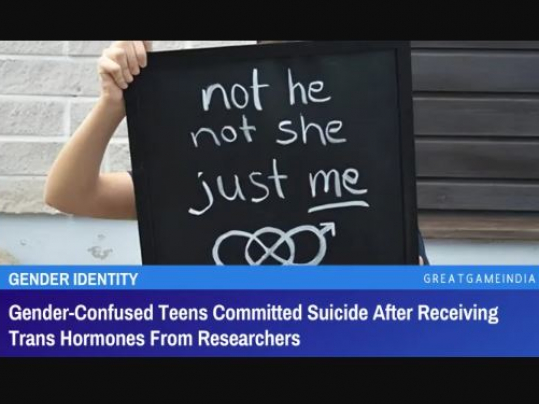COVID Rules Responsible For Causing 23% Decline In Your Children’s Cognitive Abilities Find Disturbing Study
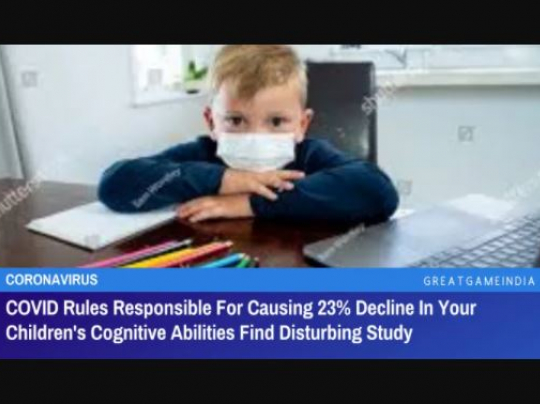
According to a disturbing new study, social distancing, facemaks and other such COVID rules are responsible for causing a 23% decline in children’s cognitive abilities. The study also found a similar reduction in the development of children’s communication skills, both verbal and nonverbal.
- A new study from Brown University shows that masks and other social distancing measures can actually hinder a child’s development.
- The probe was able to analyze the development of a youngsters brain through various stages like infancy, childhood and adolescence.
- In this study, researchers initially analyzed 1,070 assessments given to 605 children in March 2020, when COVID lockdowns and masks started coming into common use.
- Between March 2020 and June 2021, another 154 assessments were made from 118 children administered which was when the pandemic peaked.
- During the 2021 pandemic, 39 children born in 2018 and 2019 were analyzed.
- The report found that upon measuring children’s IQ estimates, they had dropped by 23% since the onset of the pandemic.
- The study also found a similar reduction in the development of children’s communication skills, both verbal and nonverbal.
Brown University scientists Sean CL Deoni, Jennifer Beauchemin, Alexandra Volpe, and Viren D’Sa, collected data on 1,600 children and their caregivers who have been enrolled in the study between the ages of 0 and 5 on a rolling basis. They did the review in collaboration with global consulting firm Resonance.
Cognitive development of the youngsters through infancy, childhood and adolescence were analyzed by the probe. It also shed light on how average development scores in three key areas had been severely affected as the COVID era progressed, reported Dailymail.
In this study, researchers initially analyzed 1,070 assessments given to 605 children in March 2020, when COVID lockdowns and masks started coming into common use.
Between March 2020 and June 2021, another 154 assessments were made from 118 children administered which was when the pandemic peaked.
At the same time, 39 children born in 2018 and 2019 have been analyzed throughout the pandemic leading up to 2021.
The team then examined the three most accepted indicators of child development – the early learning composite (ELC), verbal development quotient (VDQ), and non-verbal development quotient (NVDQ).
The components of a child’s early learning correspond to his or her fine motor, visual reception, receptive, and expressive language scales. This scale can be considered the scale that’s equivalent to IQ score for early ears.
The two development quotients determines how children are maturing in respects to their language and other skills compared to youngsters of the same age group.
The results show that the early average results decreased by 23% from 100% in 2019 to 80% in 2020 and finally 77% in 2021.
At the same time, the level of verbal development also dropped significantly, from an average of 100 in 2018 to 90 in 2020 and in 2021 down to around 70.
Nonverbal development quotient has been reduced similarly: from 105 in 2019 to 100 in 2020 and approximately 80 in 2021, respectively.
The study concluded that ‘children born during the pandemic have significantly reduced verbal, motor, and overall cognitive performance compared to children born pre-pandemic.’
‘In addition,’ the report adds, ‘masks worn in public settings and in school or daycare settings may impact a range of early developing skills, such as attachment, facial processing, and socioemotional processing.’
According to the authors, boys from poorer families are more at risk of seeing a dip in their cognitive testing scores. Wealthy parents can reduce the effects of pandemic much more effectively.
They explained: ‘Comparing yearly mean scores since 2011, controlling for age, gender, demographic, and socioeconomic indicators, we find striking evidence of declining overall cognitive functioning in children beginning in 2020 and continuing through 2021.’
‘We find that males appear significantly more impacted than females, and that higher socioeconomic status (SES, as measured by maternal education) helps buffer against this negative impact.
‘On a more individual level, we examined longitudinal pre and during-pandemic trends in the same children from 2018 to 2021, again finding declines in ability in 2020 and 2021.’
The results of the study came when parents around the world struggle with the idea that wearing a mask could interfere with their children’s natural learning and communication skills.
‘There are sensitive periods in early childhood development in which language development and emotional development are really rapidly developing for the first few years of life,’ Ashley Ruba, a postdoctoral researcher in the University of Wisconsin-Madison’s Child Emotion Lab, told CNN in August.
Doctors further said that developing children need to look at other people’s subtle verbal or facial cues to better understand how a person feels and this skill is very important in childhood.
In addition, the ability to see their face also prevents children from choosing whether something or a situation is safe or dangerous, Ruba added.
Although it has been suggested that masks may not cause a significant reduction in a child’s cognitive abilities, studies have shown that a number of pandemic-related factors that may be involved and could be blamed the dip. To be more specific, the dip in lack of social interactions between the developing children.
This happened after in-person learning schools closed, and many experts attribute the lack of social contact to the increase in mental health problems in children and, in some areas, to the increase in youth suicides.
According to the CDC, COVID infections are generally safe for younger children, while only 731 confirmed cases of COVID deaths have been registered in young adults aged 0 to 18 from March 2020 to November 24 2021.
This has led many parents to call for most restrictions on children to be lifted, especially as children five and older can now be vaccinated.
Those who want their children to wear masks say there is no way of knowing whether a perfectly healthy child may contract a severe COVID infection. They also emphasize that children may not get seriously ill, but rather continue to pass the infection to adults such as parents, grandparents, or teachers who may have severe or even fatal symptoms.
‘The COVID-19 pandemic has fundamentally altered the child health landscape, with pregnant mothers and individuals, and children living in a strikingly different economic, psychosocial, and educational environment than what was present just 18 months ago.
‘Against this environmental backdrop, unanswered questions remain regarding the impact of the work-from-home, shelter-in-place, and other public health policies that have limited social interaction and typical childhood experiences on early child neurodevelopment.’
It adds: ‘While socioeconomic factors appear to mitigate against the negative consequences of the pandemic, the primary factors underlying our observed trends remain unknown.
‘Understanding these factors are critical to helping ensure affected children rebound as the pandemic winds down and they re-enter daycares and schools; as well as implementing additional public health and educational policies that address the most affected of children, particularity those in lower income families.’
Since the outbreak of COVID-19 pandemic, people all across the globe have started using facemasks to prevent the spread of infection from one person to the other. Also the government and health ministries of several countries are encouraging people to wear facemasks whenever they step outside their home. But till date the efficacy of the facemasks in controlling the spread is not determined. So how effective are facemasks against COVID?
Below you can find a list of over 30 studies showing that face mask are useless against COVID-19.
Meanwhile, according to experts, the Australian study which claimed that mandatory masks stopped the second wave of coronavirus is total crap.
On the other hand, according to the former FDA Commissioner Scott Gottlieb, the 6 feet Social Distancing rule was completely made up and arbitrary and nobody knows where it came from.
The social distancing rule followed worldwide is not based on science. “This six-foot distancing requirement has probably been the single costliest mitigation tactic that we’ve employed in response to COVID … and it really wasn’t based on clear science. … We should have re-adjudicated this much earlier,” he said.
- Source : GreatGameIndia





